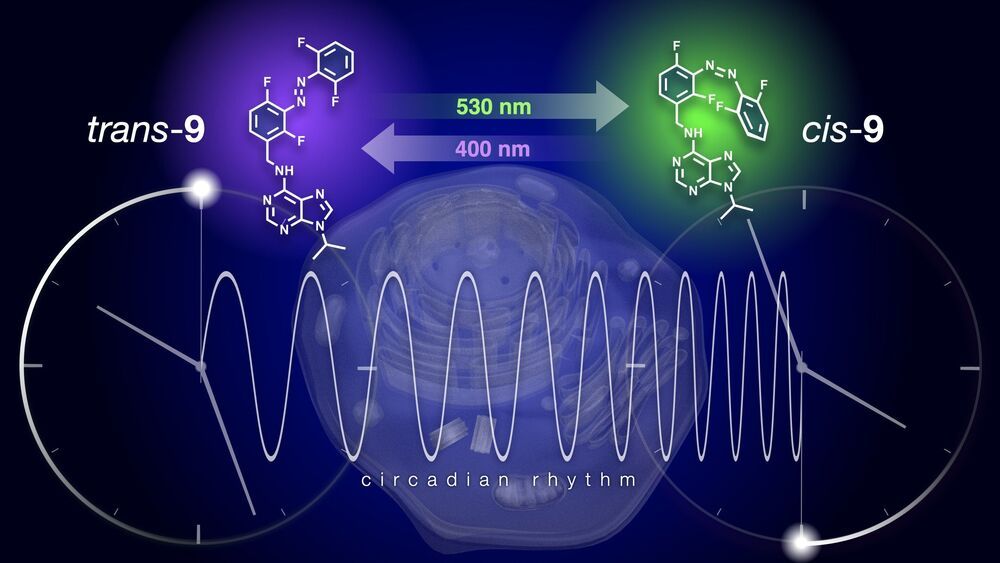The biological clock is present in almost all cells of an organism. As more and more evidence emerges that clocks in certain organs could be out of sync, there is a need to investigate and reset these clocks locally. Scientists from the Netherlands and Japan introduced a light-controlled on/off switch to a kinase inhibitor, which affects clock function. This gives them control of the biological clock in cultured cells and explanted tissue. They published their results on 26 May in Nature Communications.
Life on Earth has evolved under a 24-hour cycle of light and dark, hot and cold. “As a result, our cells are synchronized to these 24-hour oscillations,” says Wiktor Szymanski, Professor of Radiological Chemistry at the University Medical Center Groningen. Our circadian clock is regulated by a central controller in the suprachiasmatic nucleus, a region in the brain directly above the optic nerve, but all our cells contain a clock of their own. These clocks consist of an oscillation in the production and breakdown of certain proteins.
